Concrete Wall in Interior: 4 Ideas, 20 Best Examples
The loft style with its industrial charm is currently at the peak of fashion, so concrete walls can be found in bedrooms, living rooms, and bathrooms. Moreover, concrete is easy to combine with any other materials.
A few decades ago, it was hard to imagine that rough gray concrete would become one of the main trends in interior design for residential apartments. However, since the loft style with its industrial charm reached the peak of fashion, concrete walls can be found in bedrooms, living rooms, and bathrooms. Moreover, concrete is easy to combine with any other materials. Today we will show this in 20 best examples.
Strict Living Room
The main advantage of a concrete wall in interior design is that it allows any designer style to be played on its background. An organic continuation of concrete finishing would be an interior in loft or minimalism style, while furniture and decor with classic accents will help create a memorable eclectic design project.
A genuine concrete wall is rarely seen in residential homes, but creating a replica should take into account the size of the living room. For large spaces, textured architectural concrete or ready-made decorative panels that are easy to mount on the wall are suitable. In a small living room, decorative stucco or microcement look better – in this case, the gray tone of the material can be diluted with additional bright tones.
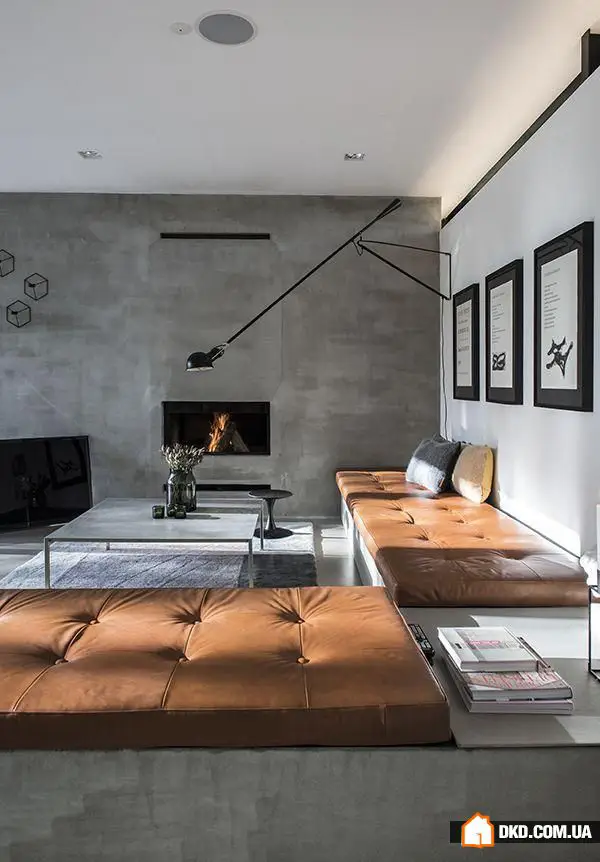
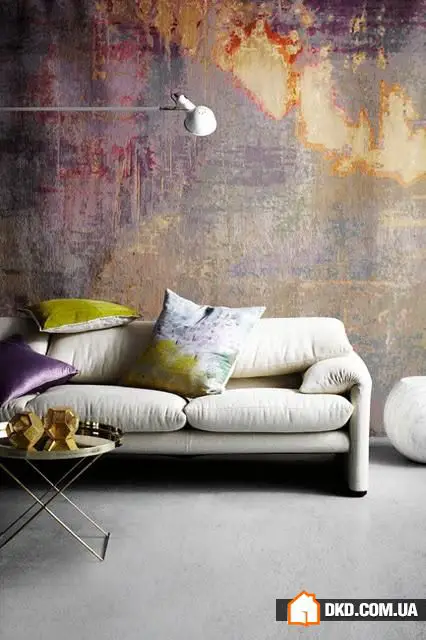
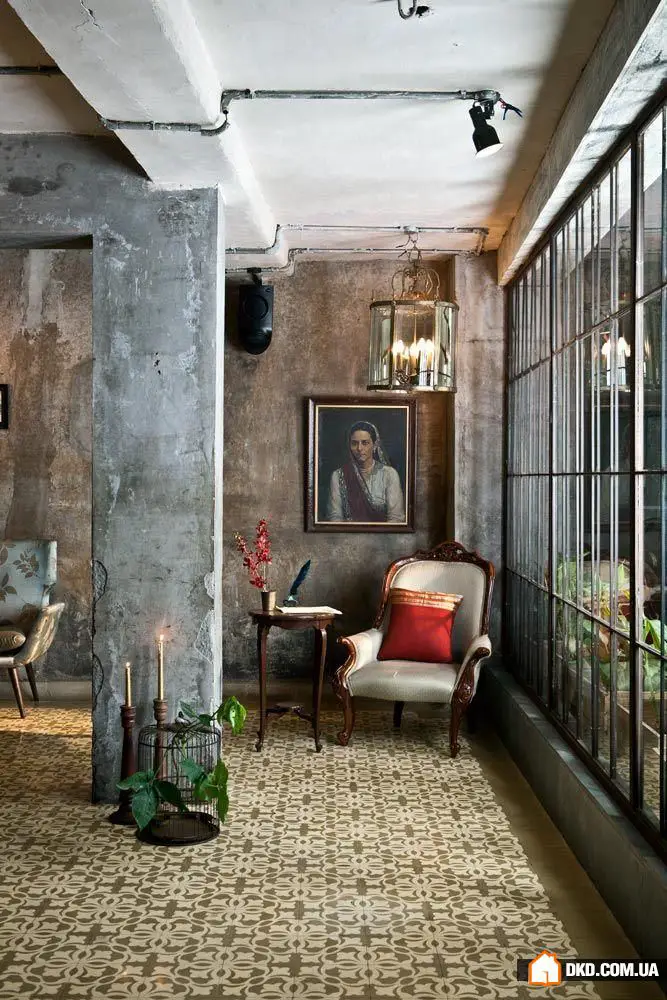
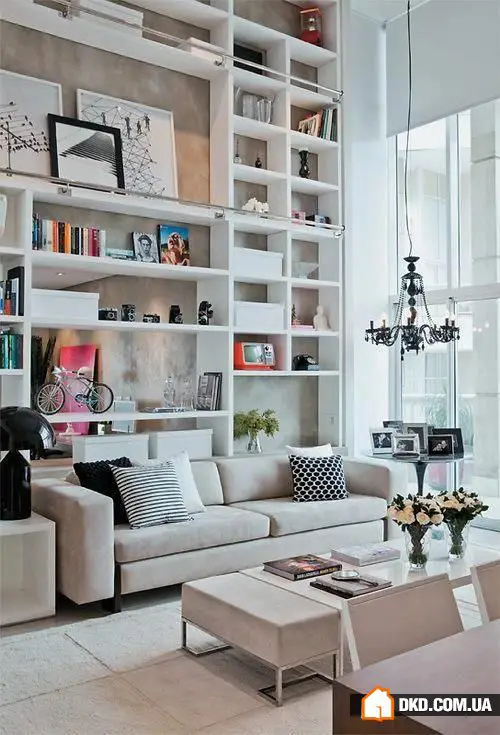
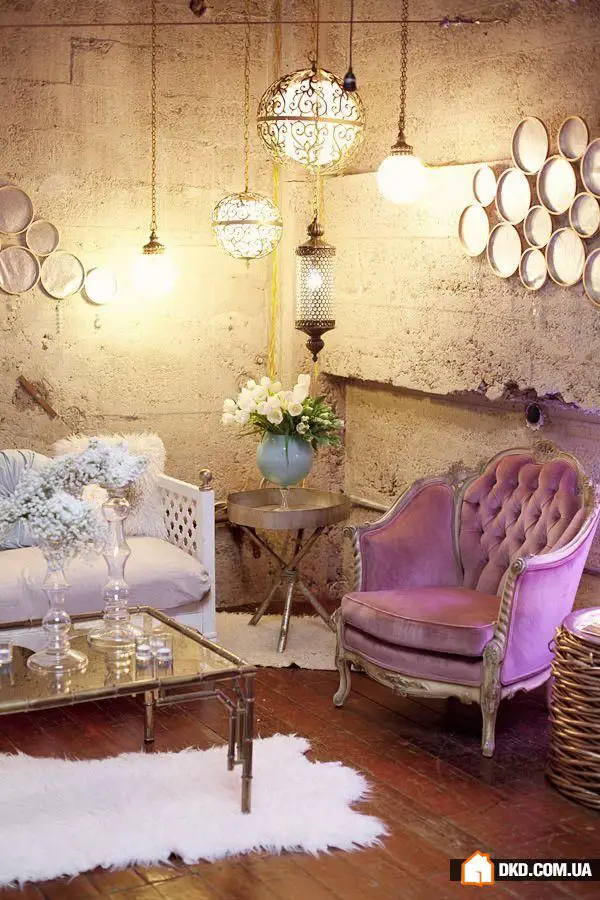
Cozy Bedroom
A concrete wall is suitable for a bedroom too – indeed, if you decide to experiment with such an idea, it makes sense to think about how to add cozy elements to the interior. The simplest way is to complement the design with expressive textiles, wool throws, or fur hides.
Moreover, concrete can be combined with other finishing materials – for example, part of the wall can be laid with wooden parquet boards. To soften an industrial interior, concrete walls are sometimes decorated with classic moldings or ceiling cornices.
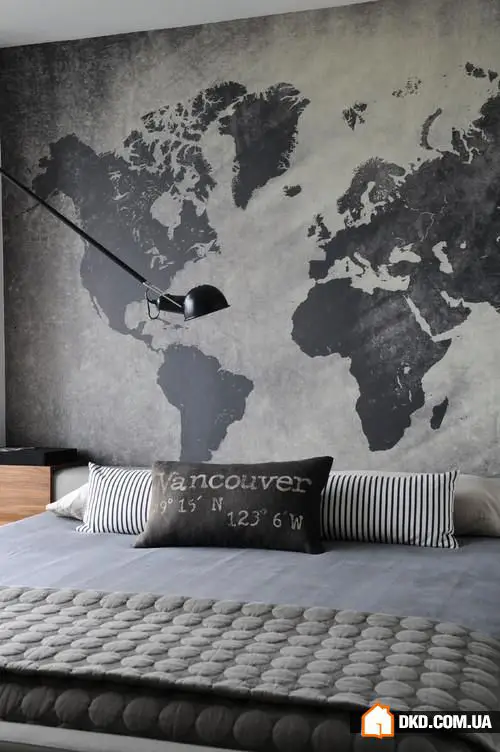
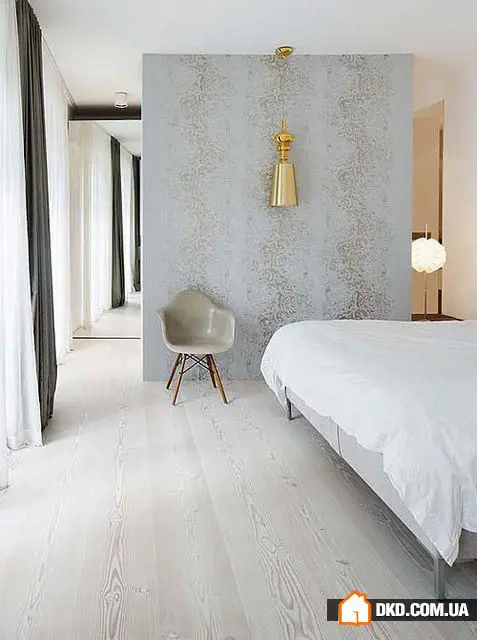
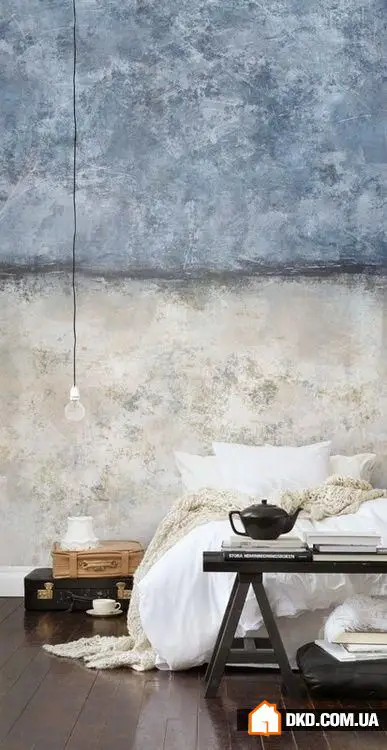
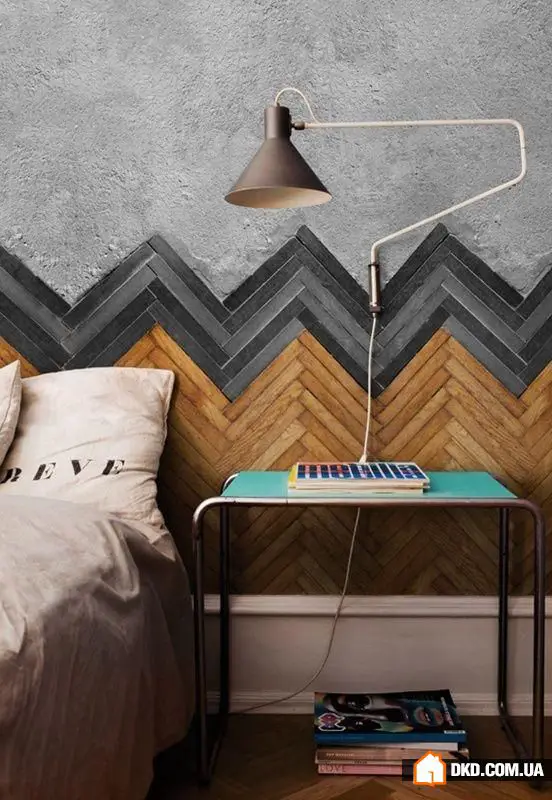
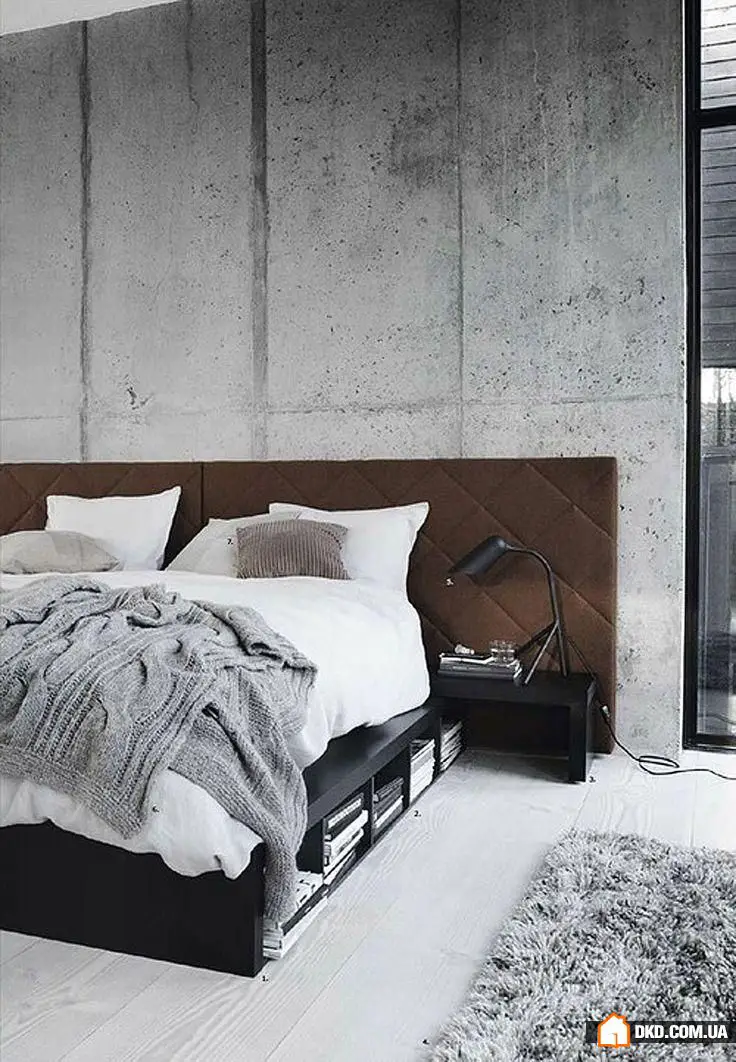
Stylish Kitchen
Concrete is a suitable material for wall finishing in dining rooms and kitchens, especially since it looks equally expressive with both light and dark furniture, and the choice of style depends on your preferences. On the other hand, porous concrete surfaces quickly get dirty in aggressive environments, so it's more reasonable to cover the work surface above the stove and sink with a tile or tempered glass backsplash.
Sometimes, concrete walls in kitchen interiors are complemented with other elements made of the same material – such as a bar counter or an island, or installing concrete countertops. Thanks to this combination, the interior looks more cohesive.
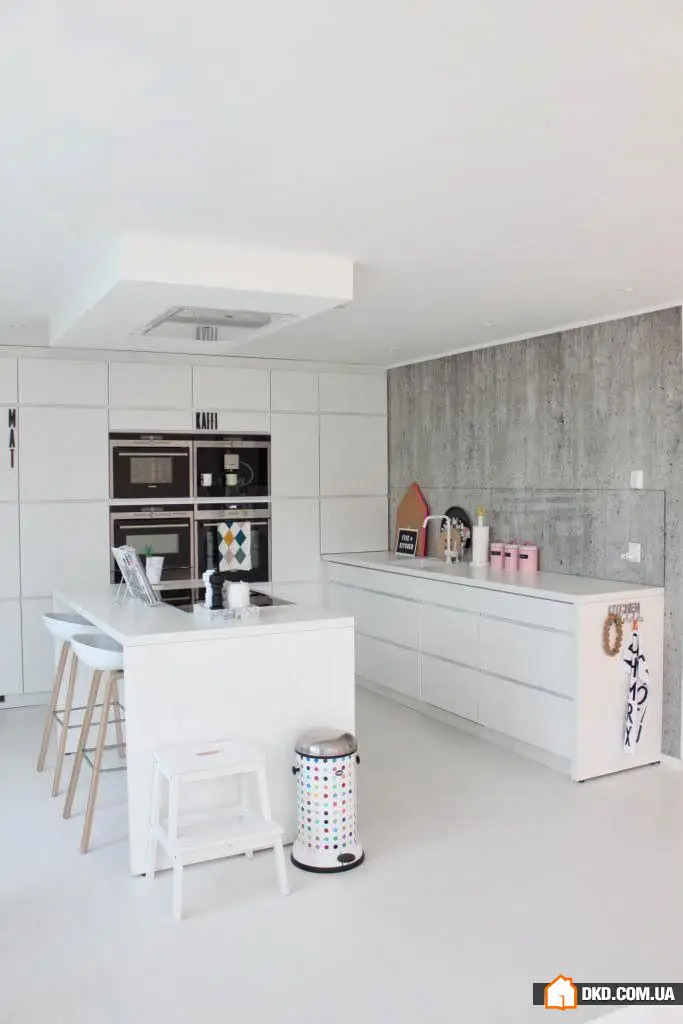
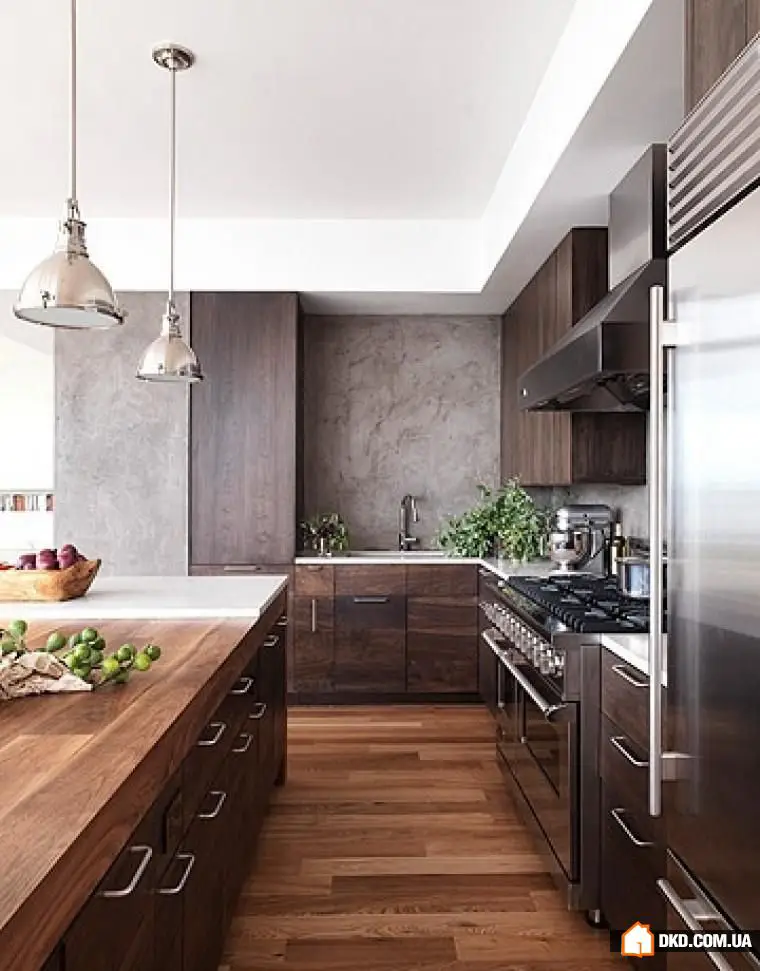
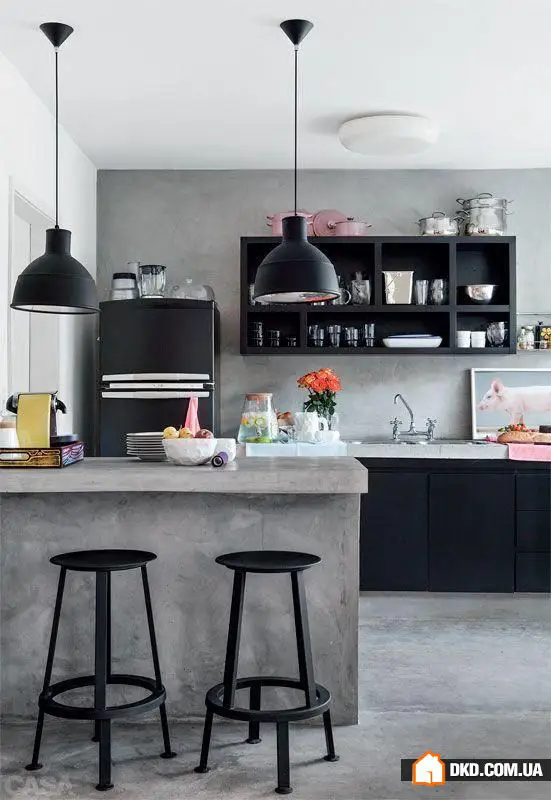
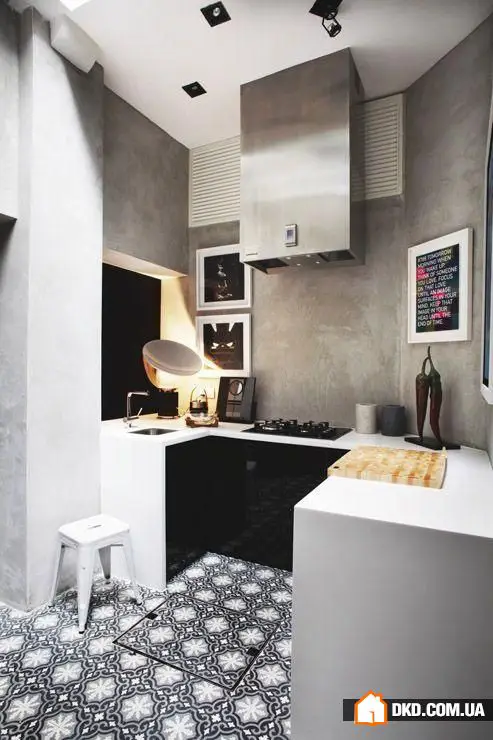
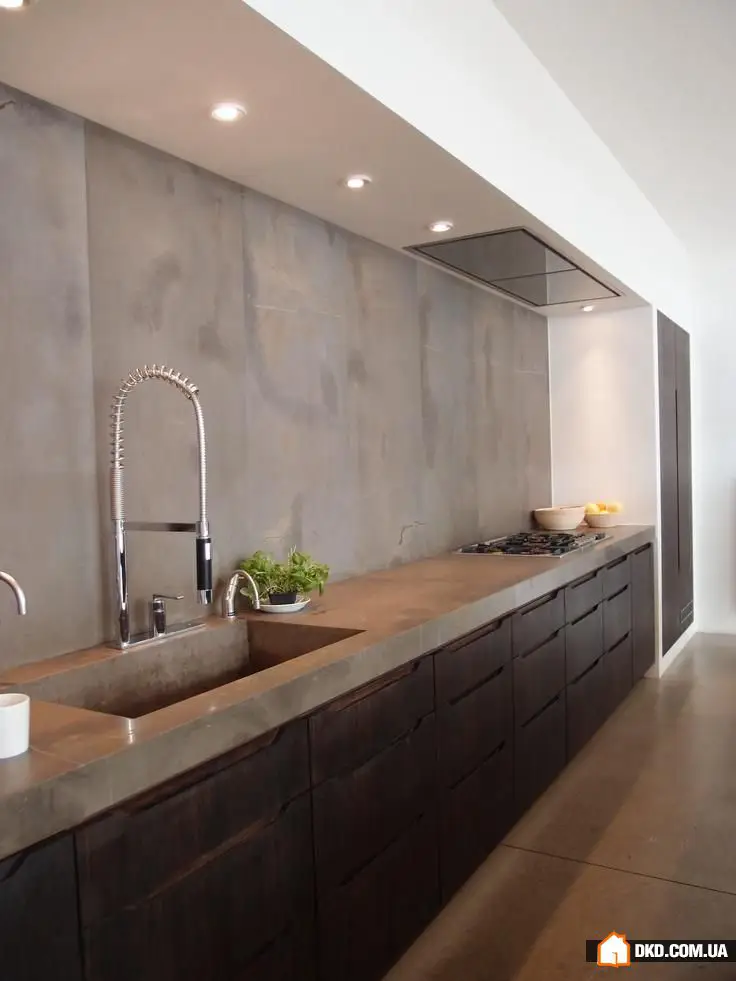
Warm Bathroom
If you always thought that bathroom interior and concrete walls are phenomena from parallel worlds, we're ready to convince you otherwise. First of all, concrete withstands humidity much better than other finishing materials; secondly, despite its cool tones ranging from dark gray to light green, concrete is a very warm material to the touch.
Glossy sanitaryware with rounded forms will contrast the porous surface of concrete, while soft textile towels and voluminous rugs make the texture combination even more noticeable. If a concrete bathroom seems too dark to you, choose this material for one of the walls – the others can be painted with light, moisture-resistant paint.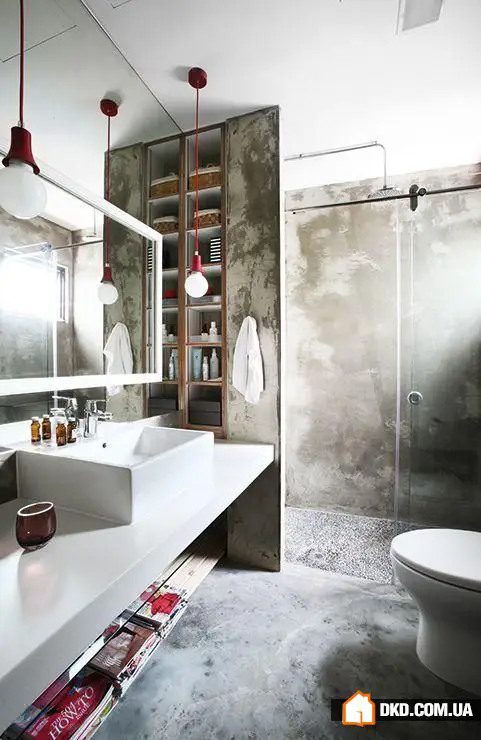


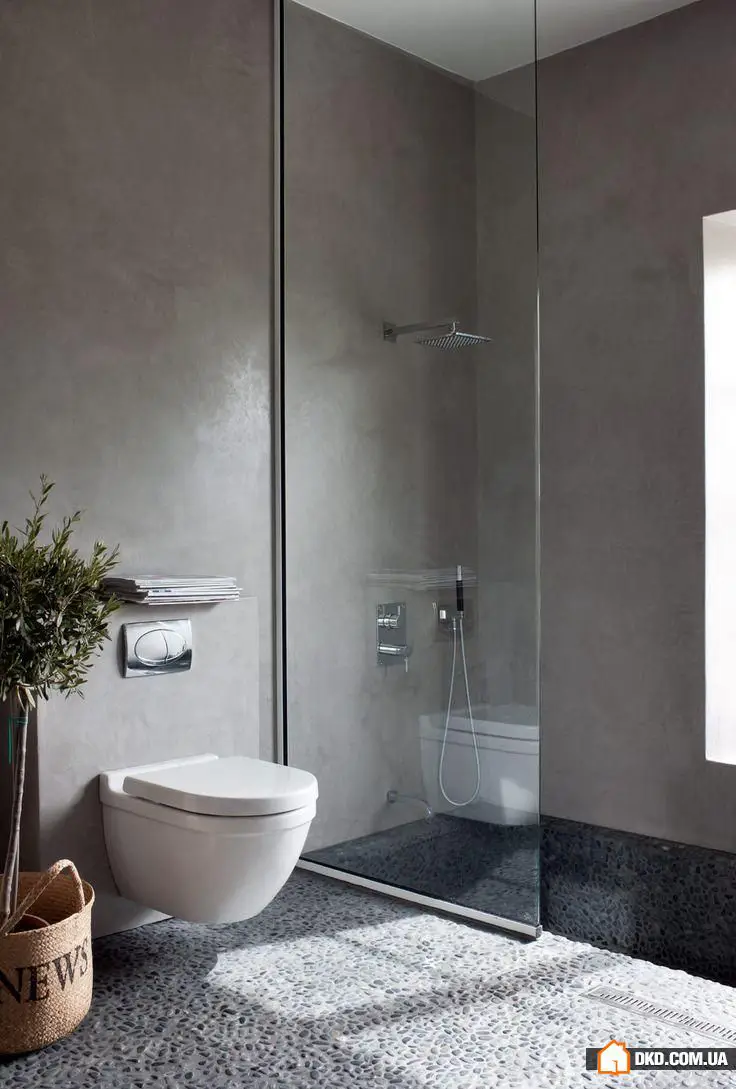

Need a renovation specialist?
Find verified professionals for any repair or construction job. Post your request and get offers from local experts.
You may also like
More articles:
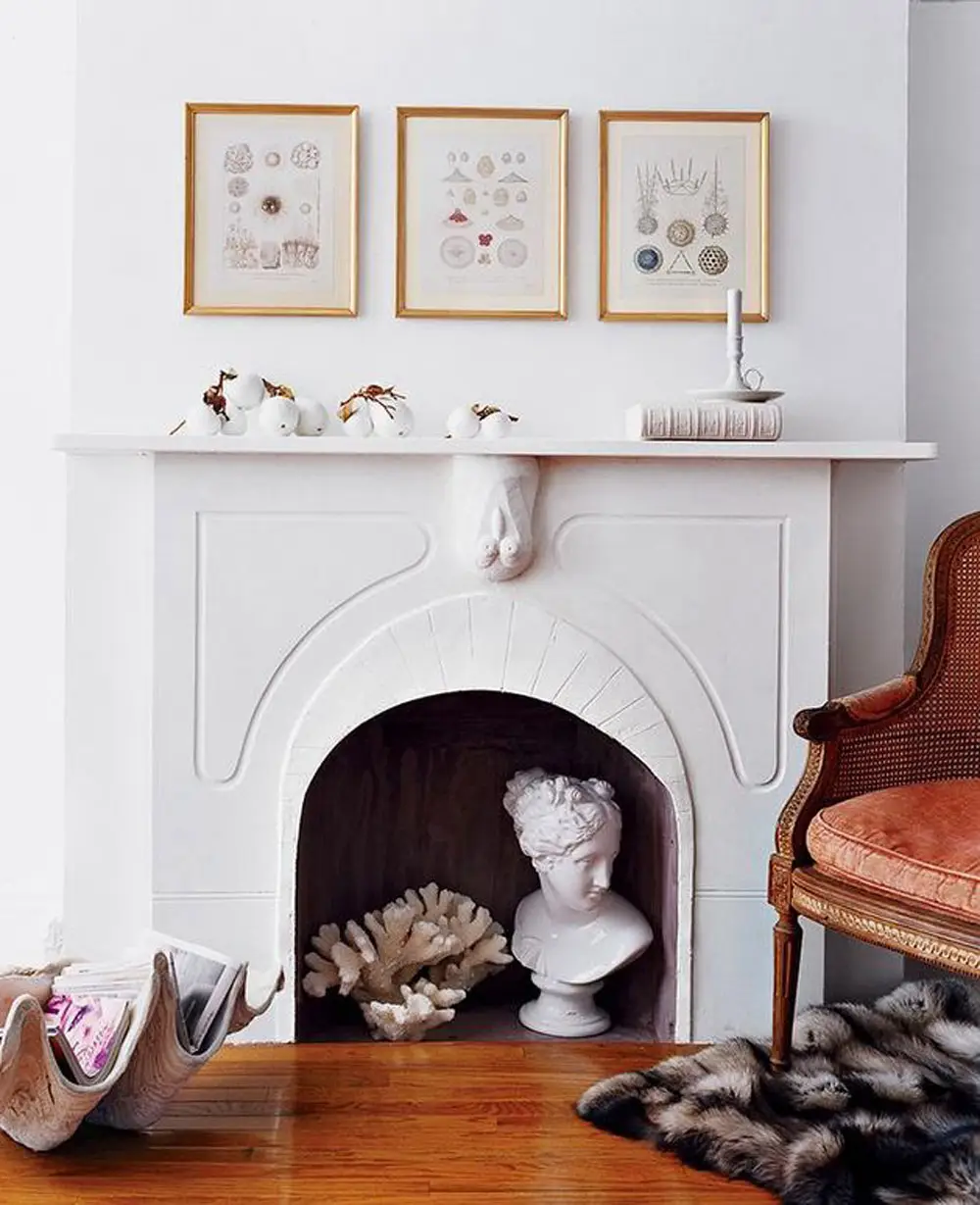 How to Decorate a Decorative Fireplace: 10 Best Ideas, 50 Bright Examples
How to Decorate a Decorative Fireplace: 10 Best Ideas, 50 Bright Examples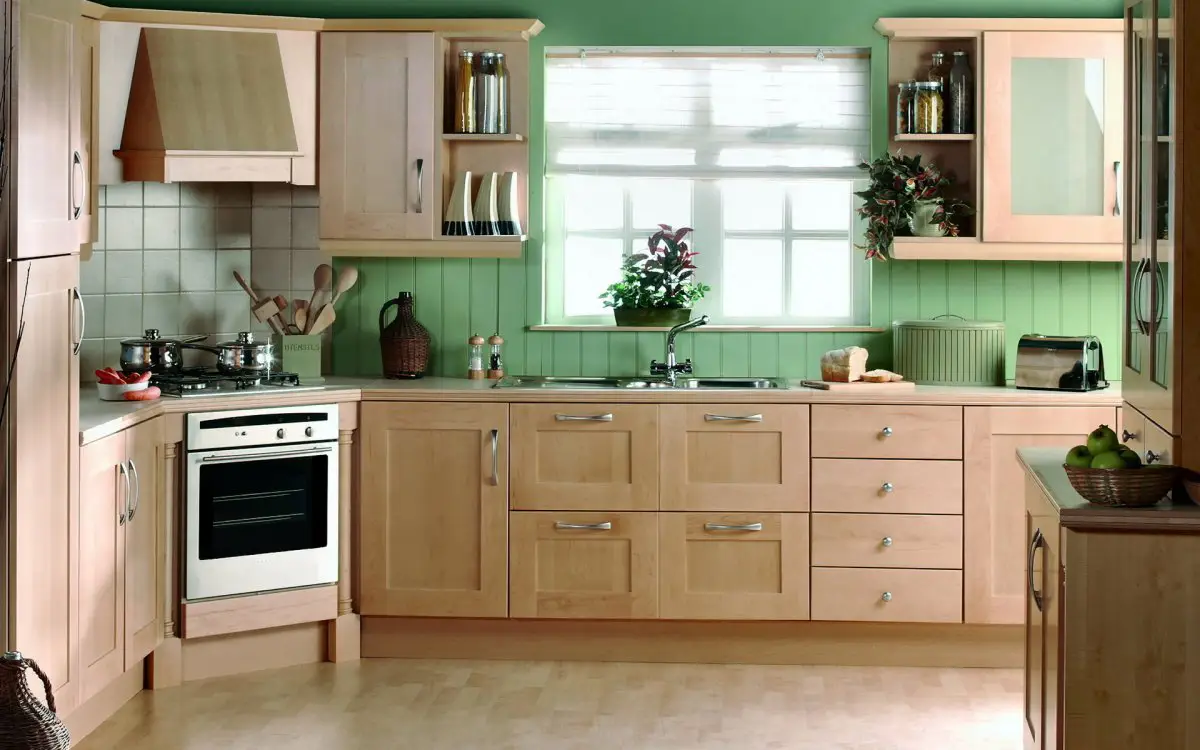 How to Arrange a Corner Kitchen: 5 Useful Tips
How to Arrange a Corner Kitchen: 5 Useful Tips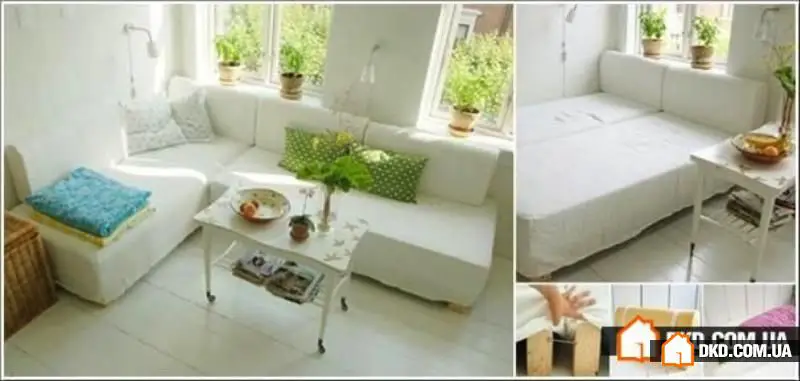 10 Creative Solutions for Small Spaces
10 Creative Solutions for Small Spaces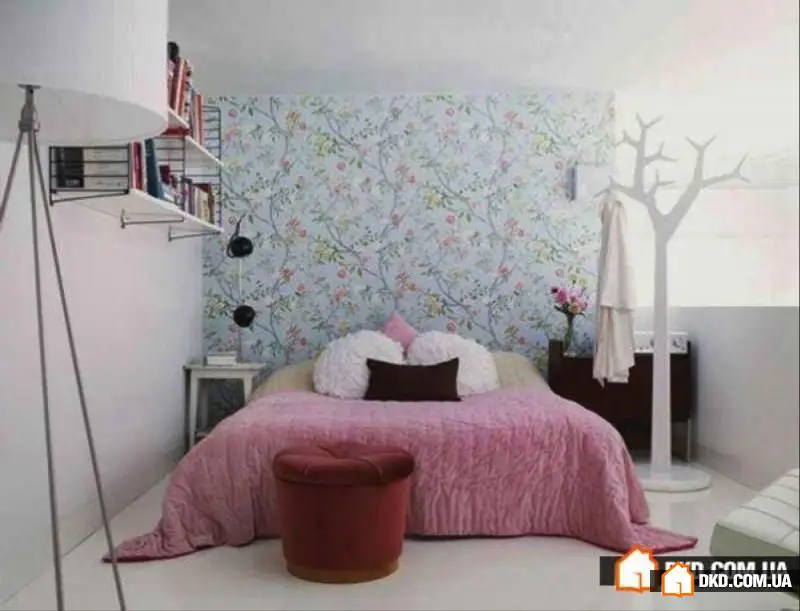 30 Ideas for Bedroom Design That Will Make It Look Bigger
30 Ideas for Bedroom Design That Will Make It Look Bigger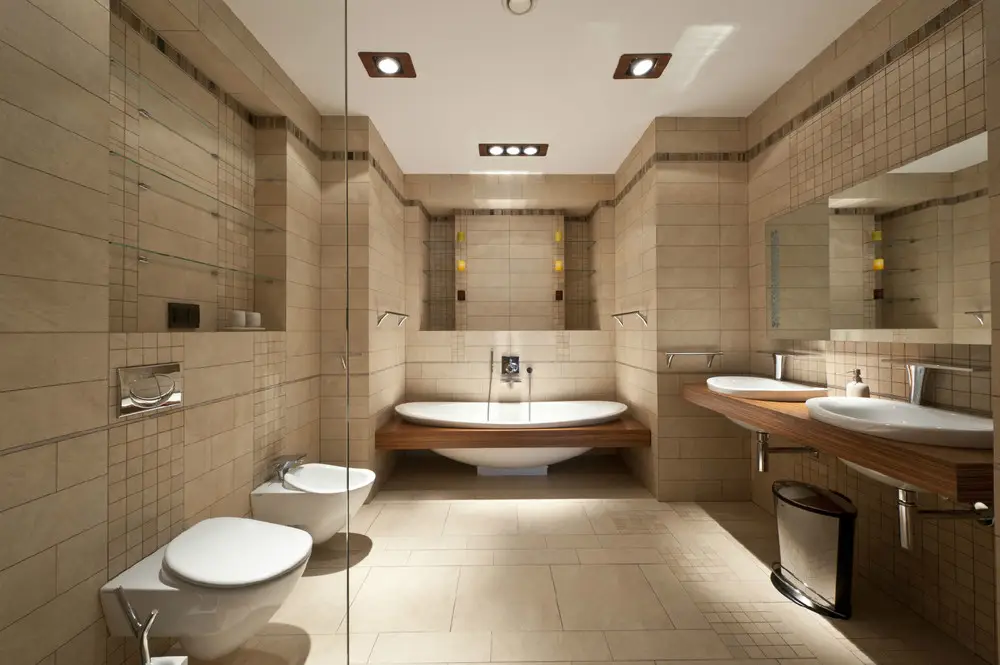 Room of the Week: Bathroom with Eco Elements
Room of the Week: Bathroom with Eco Elements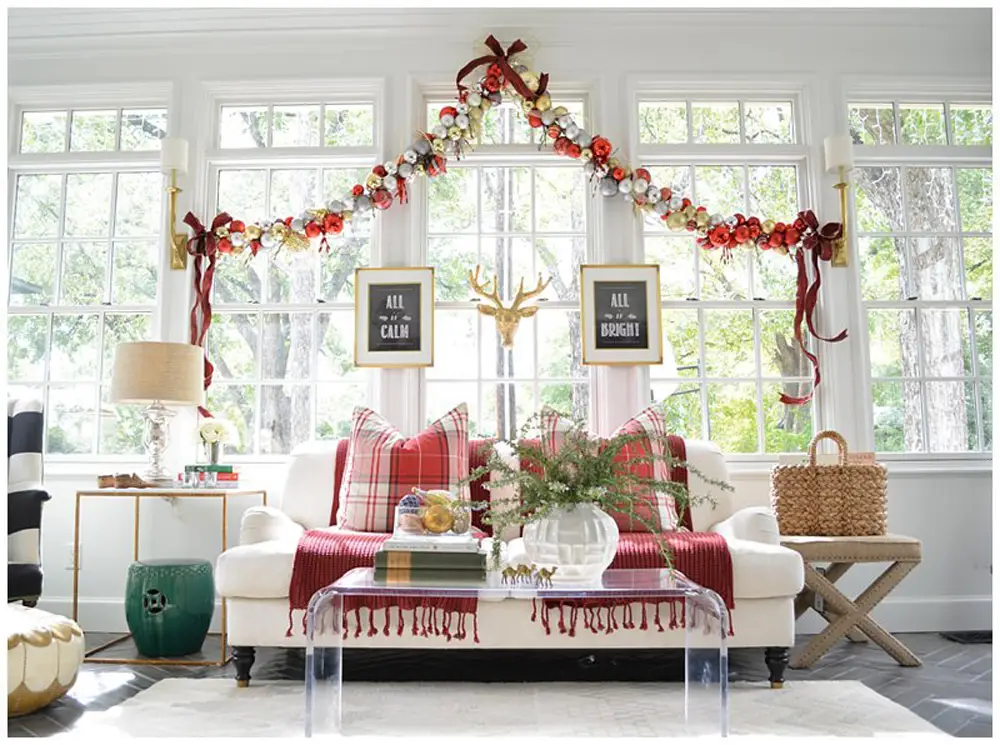 How to Decorate Your Home with Garland: 6 Ideas, 30 Bright Examples
How to Decorate Your Home with Garland: 6 Ideas, 30 Bright Examples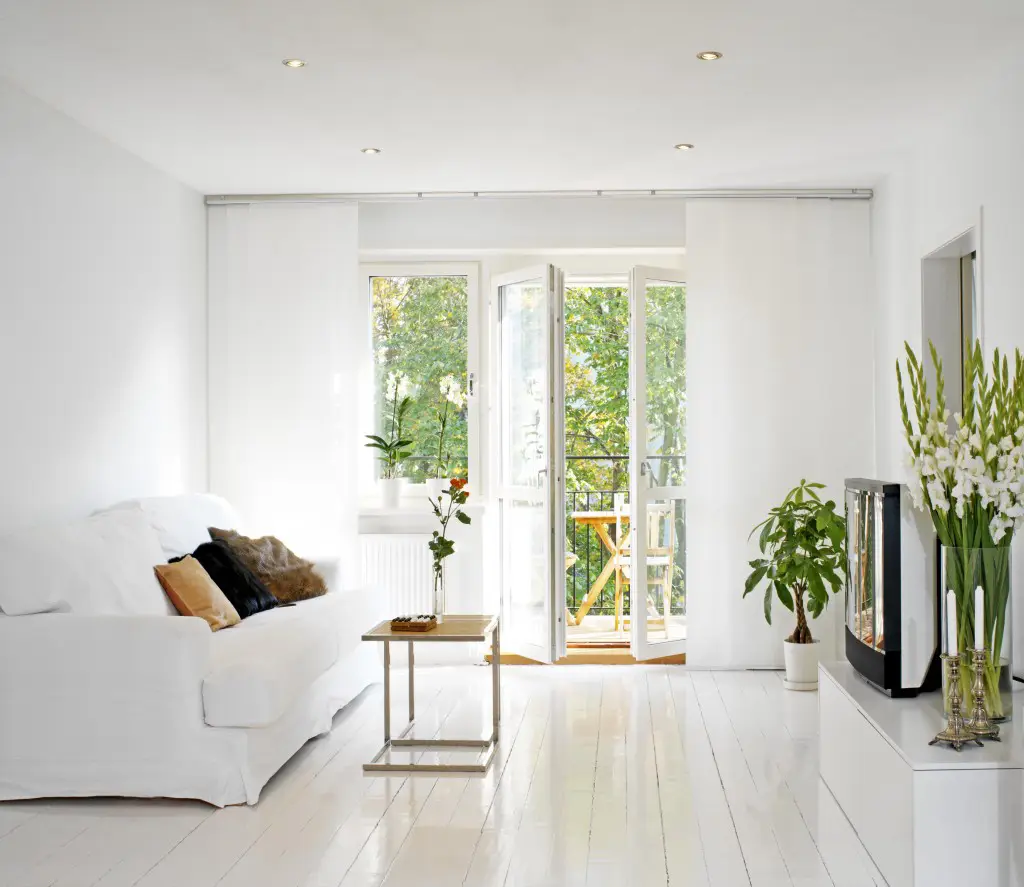 Vacation Without Worries: 7 Things to Do Before You Leave
Vacation Without Worries: 7 Things to Do Before You Leave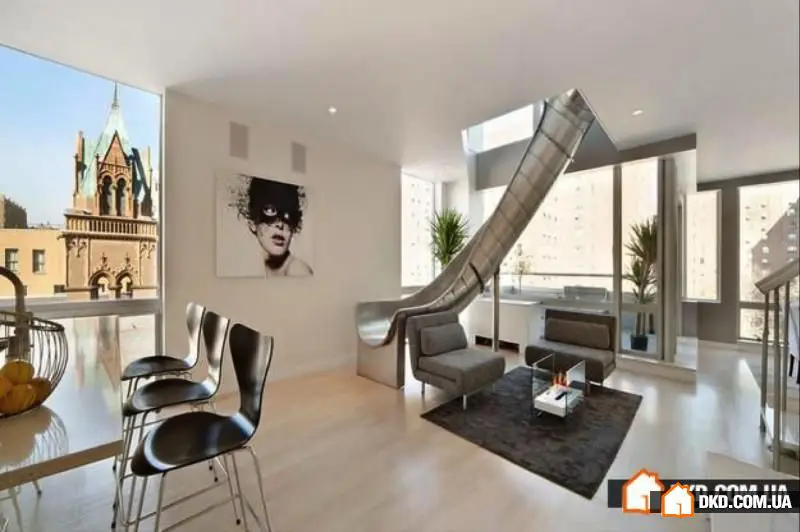 31 Design Ideas That Will Definitely Be Needed in Your New Home
31 Design Ideas That Will Definitely Be Needed in Your New Home